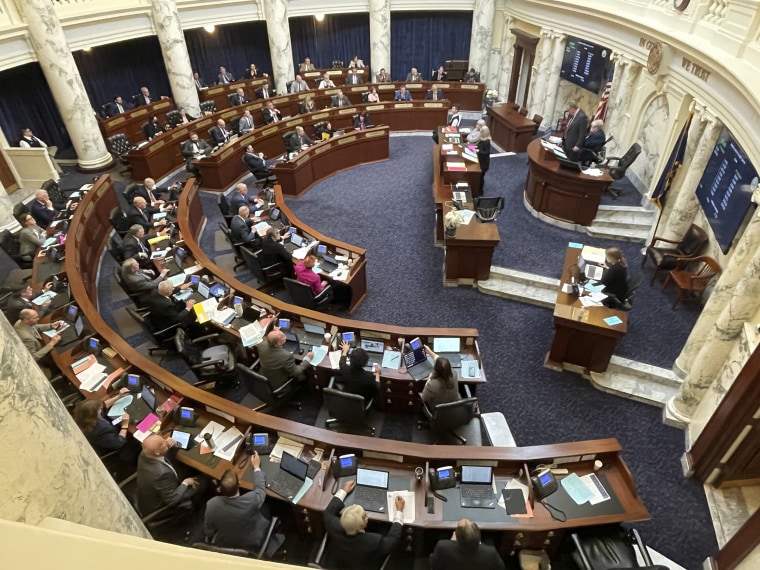The Idaho Supreme Court has temporarily blocked the state's law banning abortions after about six weeks of pregnancy.
Planned Parenthood sued to block the abortion ban, which was inspired by a Texas law that allows private citizens to sue providers who perform the procedure after cardiac activity is detected in an embryo, a week after Republican Gov. Brad Little signed the bill into law last month.
Due to the ruling, the law won't take effect as planned on April 22.
“We are thrilled that abortion will remain accessible in the state for now,” Rebecca Gibron, interim CEO of Planned Parenthood Great Northwest, Hawai’i, Alaska, Indiana, Kentucky, said in a statement to NBC News. “But our fight to ensure that Idahoans can fully access their constitutionally protected rights is far from over.”
The state’s Supreme Court instructed both sides to file further briefs as it continues to consider the case pending a final decision.
“We look forward to our day in court,” Gibron said. “Anti-abortion lawmakers have made clear that they will stop at nothing to control our lives, our bodies, and our futures. Planned Parenthood will continue fighting for every person’s ability to access basic health care.”
The law in Idaho is narrower than the law in Texas, which lets any citizen, even those with no connection to a woman seeking an abortion, file a lawsuit against those who perform the procedure after about six weeks — “before many people know they are pregnant,” according to Planned Parenthood.
Idaho's legislation allows family members of “preborn babies” to sue providers for a minimum of $20,000, in addition to legal fees. Such lawsuits can be filed up to four years after an abortion is performed.
Many opponents of the law have argued that it is unconstitutional. As he signed the bill, Little voiced his concerns in a letter, saying, "Deputizing private citizens to levy hefty monetary fines on the exercise of a disfavored but judicially recognized constitutional right for the purpose of evading court review undermines our constitutional form of government and weakens our collective liberties."
“While I support the pro-life policy in this legislation, I fear the novel civil enforcement mechanism will in short order be proven both unconstitutional and unwise,” Little wrote.
White House press secretary Jen Psaki called it a "devastating" attack on women's rights last month.
“We knew that when Texas passed SB8, its extreme law that blatantly violates the constitutional right reaffirmed by Roe v. Wade, it would invite other states to follow,” she said. “The Biden-Harris Administration will continue to stand with women and support their right to make their own health care decisions, a constitutional right that Roe v. Wade reaffirmed nearly five decades ago.”
GOP lawmakers in several other states have also introduced measures similar to the Texas law.

